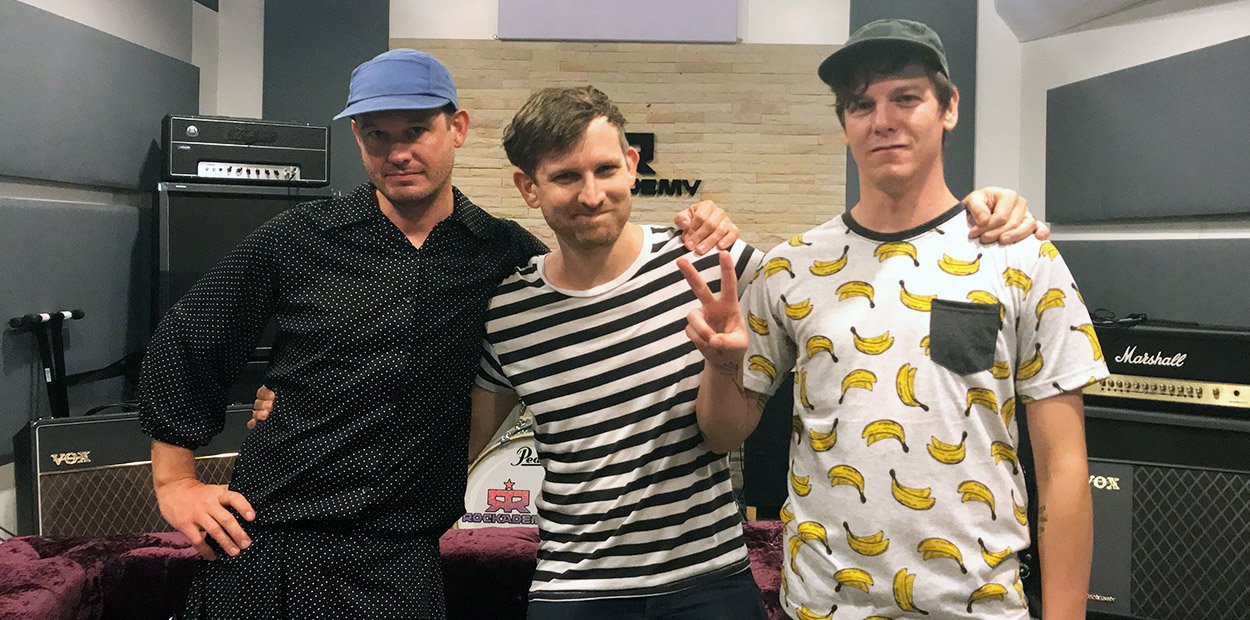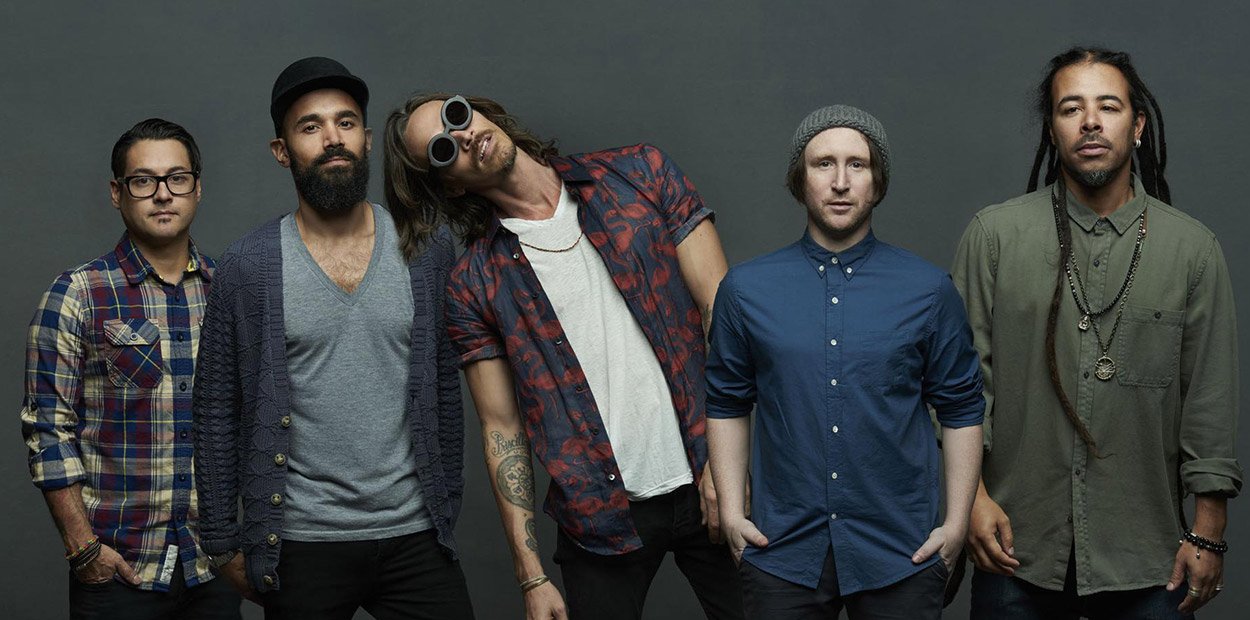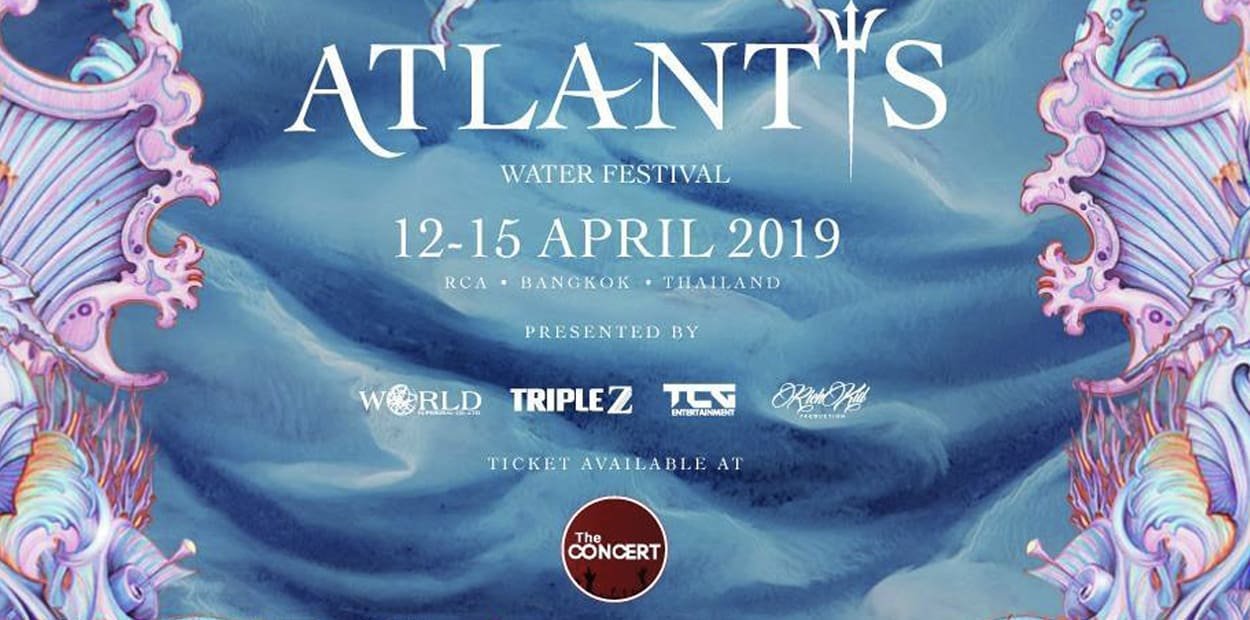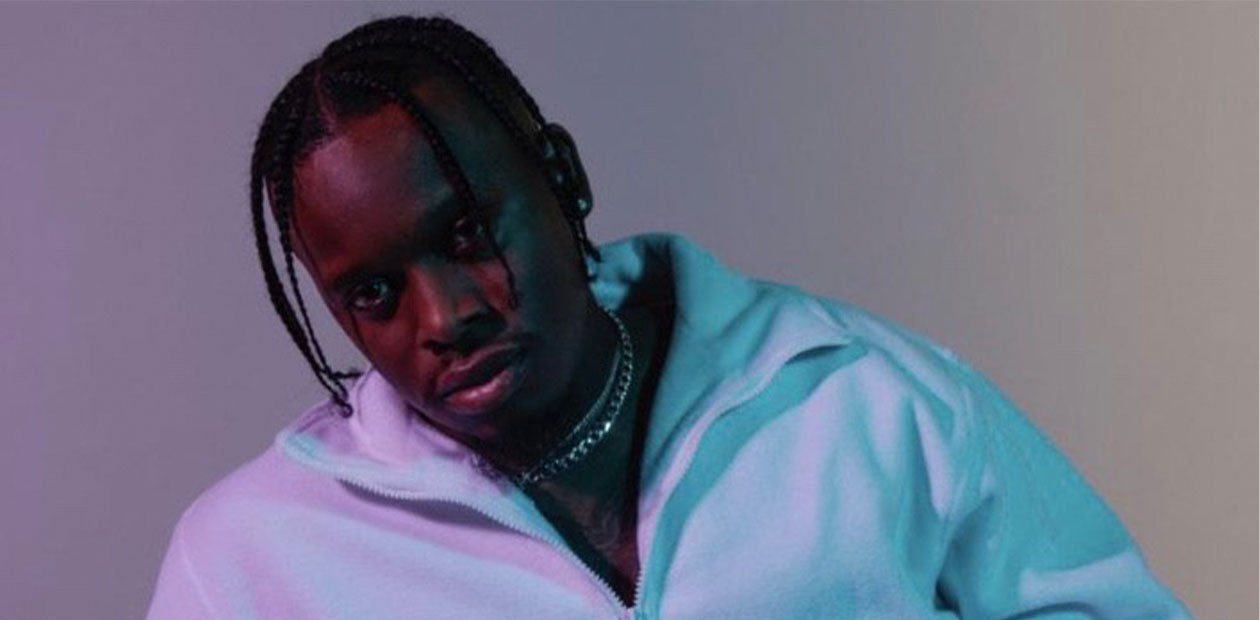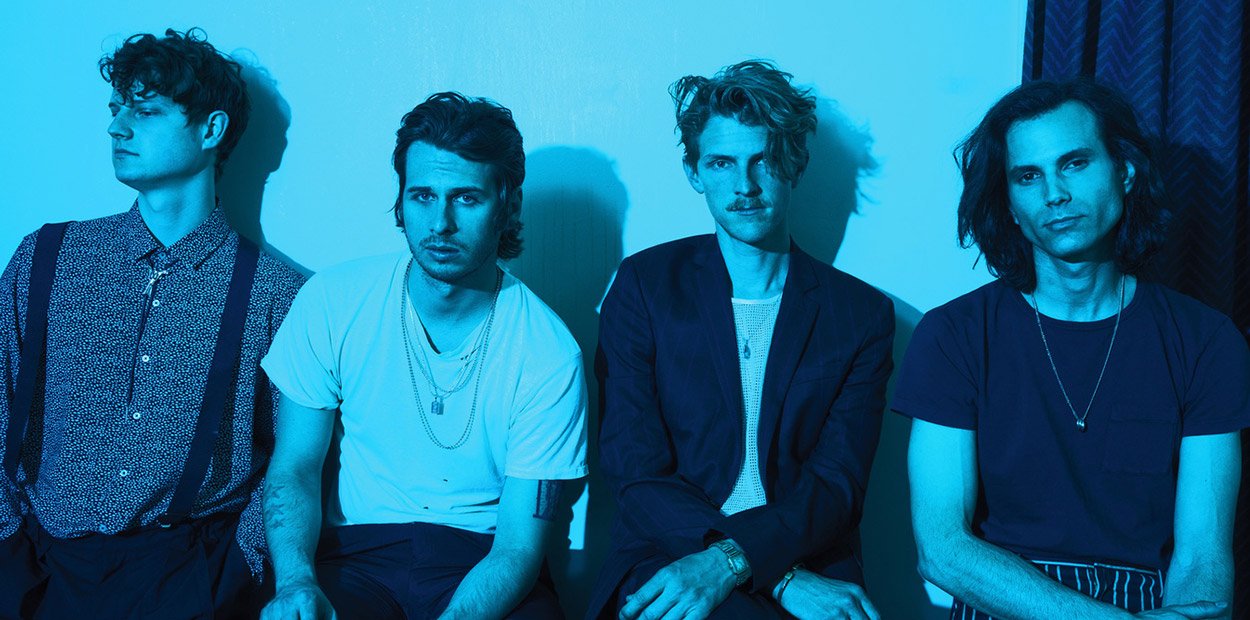Whether you chuckled or frowned upon seeing their name for the first time on a playlist or YouTube’s suggestion bar, it’s hard to retrace from STRFKR’s gleaming, jam-worthy make of indie pop. Even if it means you’ll be dancing in frontman Josh Hodges’s existential shoes.
Their latest album, Being No One, Going Nowhere, came out last November and it’s through and through the STRFKR sound fans know and love, polished off with a more mature outlook on the mortal predicaments they have limned before: there’s no reason why you shouldn’t have fun in the face of an impending doom.
Beside the shows the band have been putting on tirelessly as if it were the 90’s (“We’ve been touring the US for ten years. It’s built up on word of mouth.”), fans have found extra doses of STRFKR in the Vault collection, three volumes of demos and unreleased rarities salvaged from Hodges’s “old and fucked up” computer. The final release of the series, Vault Vol. 3, is due December 1.
But before we peek some more into their creative process, here’s what Hodges, Shawn Glassford and Keil Corcoran say about the decision to put out the intimate collection, their first Southeast Asia touchdown, getting political, Buddhist influence and more.
How does it feel performing in Southeast Asia for the first time?
Josh: Exciting. Very exciting. It’s so cool to be able to come here and have people coming out to see us. I didn’t know people even knew us. I actually thought we’d be playing in a room like this (a practice room at Rockademy Thailand where the interview was held) that’s half full or something.
Keil: We have played a few of those (laughs).
Josh: Even if it’s a half-full room, it’d still feel cool. It’s always cool for me to travel across the world to a new place and play.
Are the Asian crowds different from the West?
Josh: It depends on where. Japan is really different than anywhere else, more mellow and polite. China is a lot more like the US, people are just like, “Whatever”. A lot looser. We went to Taiwan also and it was very cool.
Shawn: For us, everything else, as far as the US is concerned, is vastly different. Shows in Europe and Asia are way smaller, way more reserved.

©AsiaLive365
What really happened with Singapore? Have you ever experienced something similar or had a show cancelled for the most unlikely of reasons?
Shawn: Does a snowstorm count? And our bus blew up once. That’s the only two times we’ve ever cancelled a show.
Josh: I’d say we have a really good work ethic. We never missed a show. We even almost died in car accidents but we still made the show, got towed to the show three hours late. Even with Singapore, I feel like we worked really hard to accommodate the government. We corresponded with them through the booker. We took the post down that offended them. We even wrote a statement targeted at Singapore saying that we don’t support drugs, but that wasn’t enough. Hopefully we can go back someday, but if not, it’s okay. They can’t scare me anyway. I mean the government, not the people. Because I dress in drag on stage, we read afterwards that being gay and out if you’re a man is illegal there. It seems kind of scary.
Shawn: We really just feel bad for the fans. They were so excited and we were really excited to go so it’s really just disappointing that we didn’t get to play and meet people there.
For many of us here, Portland looks like such a cool place to be from. What is it like to be musicians and creators there?
Josh: Its reputation is way cooler than the actual place. It was a good place for the band to form because it is a small city and manageable. You can always have a place to go play and practice playing live, public shows or house shows. The local press is very supportive. There are local festivals every year that are only local bands. They’re free and all ages so young fans can come see you. It was a good place to be a new band.
Shawn: Portland used to be affordable, now it’s not. You could afford a house with a rehearsal space so you wouldn’t have to rent it.
Josh: That’s why we all moved there. We were poor musicians and we could live in one house, practise in the basement and have a decent quality of life. Now it’s not really the case anymore. Because it’s cool, it’s really expensive. It’s all white rich people and not so cool now.
Kind of like San Francisco, isn’t it?
Josh: Yes, exactly.
Keil: It’s slowly becoming the next San Francisco.
Josh: It totally is. I go back home – we don’t live there anymore – to visit my family and I didn’t even recognise all these luxury condos they’re building fucking everywhere. It’s insane, and all the culture that made it what it was, that made it cool in the beginning is being destroyed. That’s what I feel like. But it’s still a nice place to live in some ways.
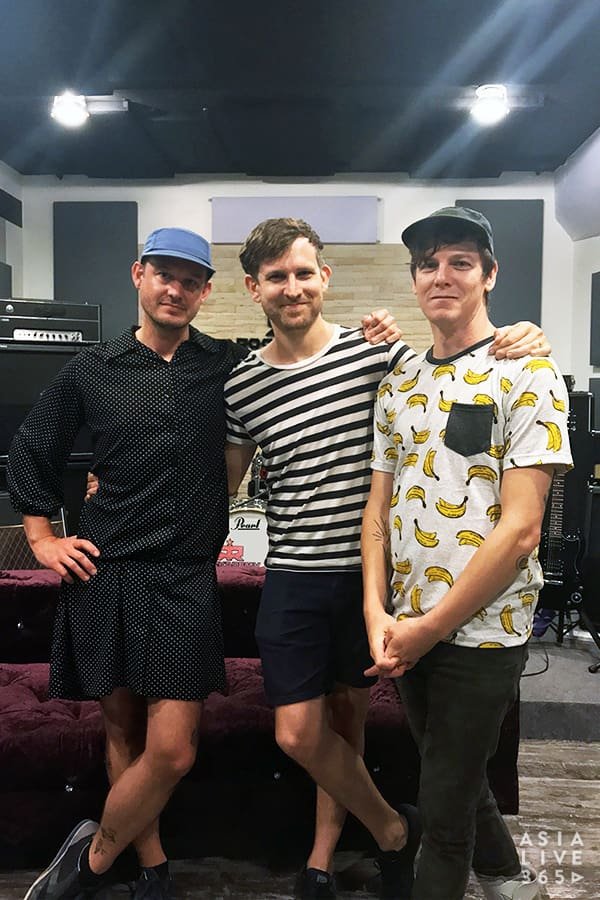
©AsiaLive365
For your new album, Being No One, Going Nowhere, it’s said that Josh exiled himself to a desert to write?
Josh: We live in Los Angeles now but we have a practice house in Joshua Tree, which is two and a half hours from LA, in the middle of nowhere where you can play all night. I put myself out there and wrote most of the album out there. It’s a really inspiring environment while also weird and harsh. It’s very cold in the winter and very hot in the summer. You can’t even go outside in the summer. There are rattle snakes and scorpions everywhere.
How did it translate into your songwriting?
Josh: I don’t know, I never know how anything translates itself into the music. Having new experiences like turn into inspiration somehow and it makes me want to do something, whatever it turns out to be or how it forms itself. Being out there in itself is inspiring, if you’re in the right mood. Because if I felt depressed out there, being alone would make me feel like I was going crazy. You’d feel trapped because it’s just you and your own thoughts. That can be a little oppressive. You have to be in a decent headspace, I think.
And if you are and you’re into it, it’s amazing. It’s like everything slowed down. That time I was out there for a few months. Sometimes I’d just wake up and paint all day, or read or do nothing. Then I’d stay up for two days working on music and sleep all day the next day. There was no pressure for anything, it’s really nice.
For most of your Thai fans, your lyrics are familiar in that they mirror the Buddhist teaching about existence – it doesn’t last, it’s flawed and it’s non-self. That last part seems to be the ultimate understanding that comes across in this album, that you’re no one, going nowhere and that’s okay, that’s how you can continue to bear it all.
Josh: It’s definitely inspired by Buddhism. The album title is taken from a book by a Buddhist nun, Ayya Khema’s Being Nothing, Going Nowhere. I read her biography on a meditation retreat and really liked it. It’s very inspiring. A lot of the songs from all the albums are inspired by that. Actually the first time I learned to meditate was in Thailand fifteen years ago. I met this weird hippie dude who’s like, “You should do this retreat I did.” So I signed up for ten days. It’s really fucking intense but really inspiring. Later in life when I was going through a depressed period again, I remembered what I’d learned and started getting into it again. I was really into meditation when this band formed so it influenced the music and still does.
Does being raised Catholic influence the music? How does that come into play with the Buddhist teachings you’d later read about?
Josh: Being raised Catholic has to do with guilt and shame especially around sexuality. One time I ended up in a BDSM club in LA because a friend asked me to. It was a really inspiring and cathartic experience for me. The values and ideas that I have are not owed to being raised Catholic, but it’s one thing to have the idea and feel that I believe this thing, and another to have an actual experience with other people who didn’t have any of that shame. That’s very freeing. I left there feeling super inspired. Talking to people who are regulars in that scene, I saw that being tied up like that and being whipped is the experience of being in the present moment and not thinking about anything else. It’s as if they were just existing and so that’s how the pain becomes pleasure to them. I think this is related to the Buddhist idea. Like the album title, you can probably talk about what the statement “Being no one, going nowhere” means for a long time, but part of it, I think, is letting go of all the ideas about what we think we need to change about everything and just being okay with existing. And that’s what I distilled from the experience at the club and that’s the Catholic aspect of it all. So for me the album title has a double meaning.

©AsiaLive365
You sample British philosopher Alan Watts’s lectures a lot. In “Interspace” (Being No One, Going Nowhere) he talks about being aware of the “us” as another form of self. You are “inseparably connected with everything there is”. Is this as political as a STRFKR record gets? Do you want to get political, especially in times like this?
Josh: These times it seems like you can’t avoid it. We get shit from our fans all the time when we post about stuff on our social media. People are trying to tell us, “Just stick to music, don’t talk about politics.” But it’s like, no, it’s always been interconnected. We all exist in this world. We can’t avoid that.
Shawn: Artists and musicians are people and they represent themselves through their music and their band. We’re political people by being humans so it’s going to come across somehow, but I don’t think we’re ever going write music that’s overtly political.
Josh: Yeah, not in that way. I think it’s more like we’re people who care about human rights and things like that. And that’s inherently political because that’s where power balance is and you have to fight for it. I hope more musicians become politicians because they’re probably more woke. More scientists, too.
Keil: Scientists should make the best politicians.
You’re releasing three compilation albums of unreleased songs this year, with the third one on the way. Tell us about the decision behind that.
Josh: For a year there was a period where I was writing constantly so I had a growing collections of little demos. We’d listen through those when we need to write a new album and go, “Oh, we should finish that one”. It’s basically a bank of songs to access if I needed them. Then after a while it became apparent that we were never going to use the songs for anything, but they still sound good enough to release. I just felt like it would be a shame to have this computer that they were on, old and fucked up as it were, just die and I’d never be able to access the songs again. So we were like, “Let take them off and release some embarrassing peek behind the scenes of our writing process”. Maybe it’s not for everybody but I think some fans will appreciate that.
Looking at the comments online, the fans are excited for sure. How does it feel as an artist to also give your critics such a hefty look into the process?
Josh: We were definitely nervous about it at first. We wrote a whole essay explaining that it’s not a real album. I think people kind of get it. The material is so raw and you can hear mumbling and half sentences on there. There’s something good about sharing that kind of thing with our listeners, partially because of the response we got talking to fans on our last tour.

